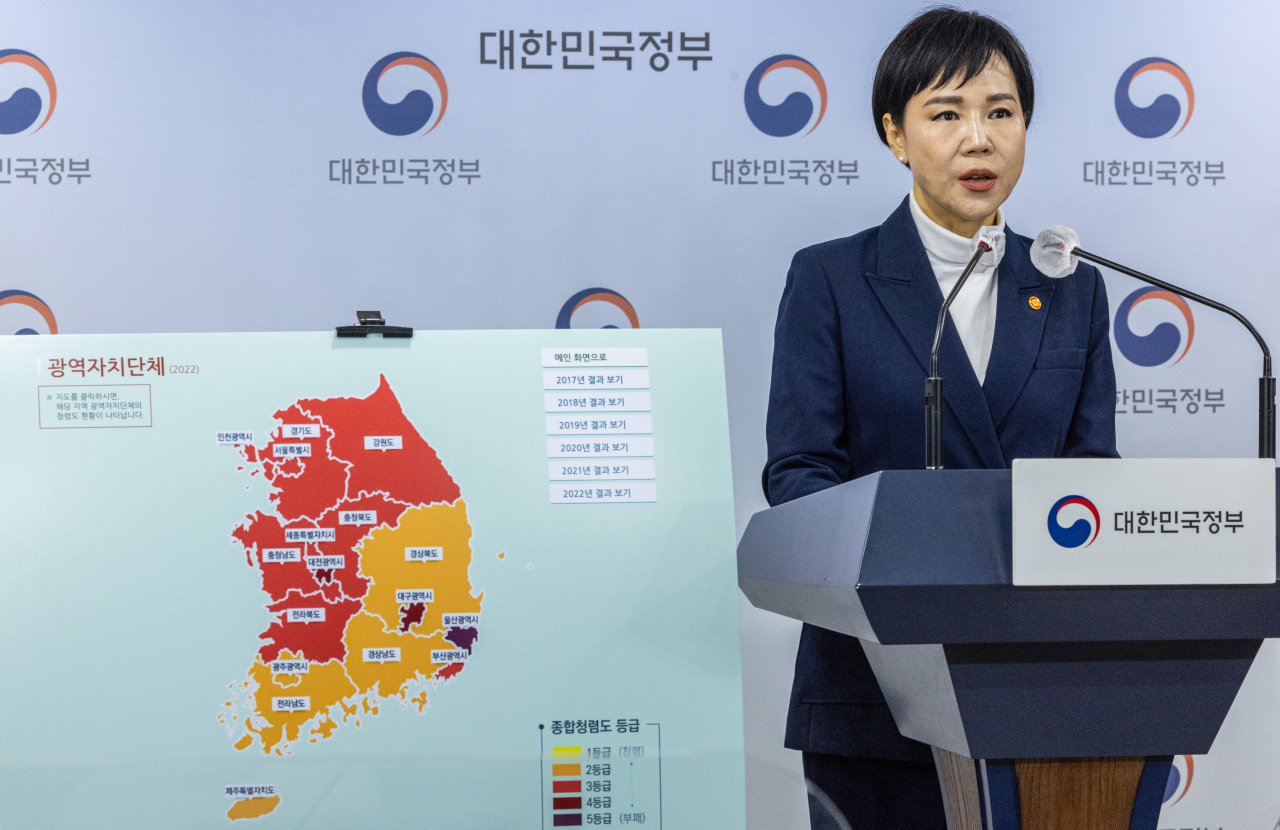 |
Jeon Hyun-Heui, chairperson of the Anti-Corruption and Civil Rights Commission, briefs about South Korea’s 2022 Corruption Perceptions Index in the Government Complex Seoul on Tuesday. (Yonhap) |
South Korea’s anti-corruption watchdog said Tuesday that Korea ranked 31st out of 180 countries around the world in a survey that gauged the perceived levels of public sector corruption.
The Anti-Corruption and Civil Rights Commission said in its analysis of the 2022 Corruption Perceptions Index that the country's latest corruption perception ranking and score rose by one spot and one point from No. 32 and 63 points, respectively, from the 2021 index. This is the sixth consecutive year that the score has risen. Countries' scores are based on a scale of 0 for highly corrupt to 100 for very clean.
The CPI is an indicator of public sector corruption by the Berlin-based Transparency International that provides an annual comparative snapshot of 180 countries and territories by their perceived levels of public sector corruption.
The 2022 CPI index drew on 13 expert assessments and surveys of businesspeople, collected by various institutions including the World Bank and the World Economic Forum.
In the latest CPI, Korea’s perceived level of corruption in the public sector ranked 31st among 180 countries and seventh among its Asian peers. Denmark came in first place with a total of 90 points, while the most corrupt country was identified as Somalia with 12 points.
The commission highlighted the Anti-Graft Act and Act on the Prevention of Conflict of Interest Related to Duties of Public Servants as factors that improved South Korea's score in the latest index.
The purpose of the Anti-Graft Act is to ensure that public servants perform their duties fairly, while the conflict of interest prevention law aims to prohibit public officials from seeking personal gain using information related to their job responsibilities.
The anti-corruption watchdog added that such efforts were also made at the pangovernmental level. It said the Ministry of Justice and the Fair Trade Commission have beefed up efforts in clamping down on economic crimes, especially those related to stock trading, finance, fair trade and taxes.
In the Bribery Risk Matrix released in November last year by the US-based TRACE, which helps companies examine the conditions that underpin business bribery risk, South Korea was classified in the “low risk” group.
Jeon Hyun-heui, the commission’s chairperson, credited the pangovernmental anti-corruption reforms for hitting a record-high global ranking in 2022. She also thanked citizens for giving their support in fighting against corruption.
“The ACRC will continue to push for systematic anti-corruption policies without resting on our laurels from this year’s result to step forward as a country with a high level of integrity that matches the international standard,” she said in a statement.







